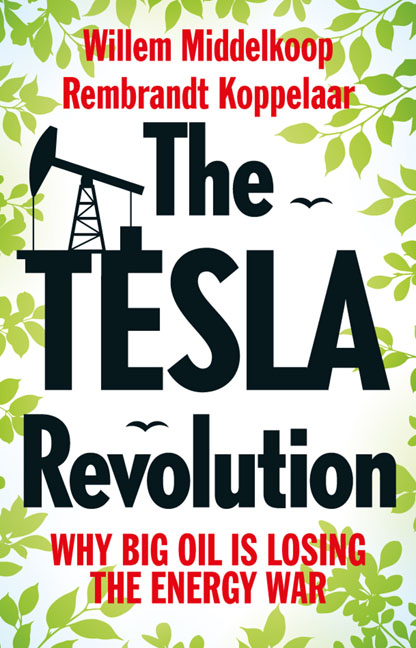Book contents
- Frontmatter
- Contents
- Prologue
- Special Introduction
- Chapter 1 The Tesla Revolution
- Chapter 2 A History of Fossil Fuel Dominance
- Chapter 3 The Petrodollar and the Geopolitics of Oil
- Chapter 4 Peak Oil Revisited: The End of Cheap Oil
- Chapter 5 Climate Change and the World of Energy
- Chapter 6 What Will the Energy Mix of the Future Be?
- Epilogue
- Appendix
- References Prologue
- Register
Chapter 6 - What Will the Energy Mix of the Future Be?
Published online by Cambridge University Press: 12 December 2020
- Frontmatter
- Contents
- Prologue
- Special Introduction
- Chapter 1 The Tesla Revolution
- Chapter 2 A History of Fossil Fuel Dominance
- Chapter 3 The Petrodollar and the Geopolitics of Oil
- Chapter 4 Peak Oil Revisited: The End of Cheap Oil
- Chapter 5 Climate Change and the World of Energy
- Chapter 6 What Will the Energy Mix of the Future Be?
- Epilogue
- Appendix
- References Prologue
- Register
Summary
China has seen rapid economic growth and significant improvement in people's lives. However, this has taken a toll on the environment and resources. Having learned the lesson, China is vigorously making ecological endeavours to promote green, circular and low-carbon growth. China will, on the basis of technological and institutional innovation, adopt new policy measures to improve industrial mix, build low-carbon energy system, develop green building and low-carbon transportation, and build a nation-wide carbon emission trading market so as to foster a new pattern of modernization featuring harmony between man and nature.
– Chinese President Xi, 2015[1]The storage battery is, in my opinion, a catchpenny, a sensation, a mechanism for swindling the public by stock companies. The storage battery is one of those peculiar things which appeals to the imagination, and no more perfect thing could be desired by stock swindlers than that very self-same thing. Just as soon as a man gets working on the secondary battery it brings out his latent capacity for lying.
– Thomas Edison in The Electrician, 1883We need a massive amount of innovation in research and development on clean energy: new ways to stabilize the intermittent flows from wind and solar; cheaper, more efficient solar panels; better equipment for transmitting and managing energy; next-generation nuclear plants that are even safer than today’s; and more.
– Bill Gates, 2015Introduction
The availability of cheap electricity on a continuous basis is taken for granted in high-income countries. A blackout causes chaos within hours in our highly sophisticated economies. The United States suffered a blackout due to a software bug in 2003, and it affected 50 million people for two days, stopping all electricity, lighting, phone services, air traffic, and train transport in the affected regions. In New York City, many people had to sleep in their offices overnight, food waste was dumped on the streets, emergency services were interrupted, raw sewage overflowed on the beaches, and water was not available in high-rise buildings as electric pumps no longer functioned.[2],[3]
In many countries the population is still far from fortunate in not having continuous access, with about 2.8 billion people suffering from power outages on a weekly basis in countries such as Tajikistan, Ghana, and Bangladesh.[4]
- Type
- Chapter
- Information
- The Tesla RevolutionWhy Big Oil is Losing the Energy War, pp. 209 - 252Publisher: Amsterdam University PressPrint publication year: 2017

